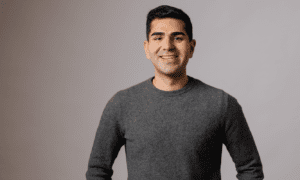In today’s tech environment, the product manager role has become one of the most sought-after yet highly competitive positions. Considered the glue that holds product development together, a product manager must be part strategist, designer, and engineer.
This multifaceted nature makes cracking the interview process a particularly daunting challenge. Candidates must navigate intense technical and strategic questions and demonstrate how they lead and creatively solve real-world problems.
The role’s importance is evident: product managers are the architects of growth in modern companies. They are responsible for identifying user needs, guiding product development, and ensuring that the final product aligns with business objectives.
However, securing this critical position is filled with obstacles, and candidates must be prepared to approach interviews with a combination of strategy, empathy, and deep market knowledge.
Understanding the Product Manager Interview Environment
This interview is unlike other roles, primarily because of its breadth. Companies seek individuals proficient in managing a product’s lifecycle and capable of driving long-term strategy. The interview process typically unfolds over several stages, each assessing the candidate’s competencies in different areas.
Initially, candidates are introduced to the interview process through phone screenings or preliminary conversations with recruiters. These discussions cover high-level aspects such as the candidate’s experience and fit for the role.
As the process progresses, interviewers present technical challenges and case studies, requiring candidates to solve product design problems, analyze market opportunities, and devise strategic solutions.
In the final stage, candidates often present these solutions to senior leadership, where they must communicate clearly and think on their feet.
What makes the interview particularly challenging is its demand for versatility. It’s not enough to be a problem-solver—you must also demonstrate leadership, empathy, and strategic foresight. Candidates who excel in these interviews effectively balance these competing demands and present a cohesive vision for a product’s future.
Preparation: Building a Strong Foundation
Success in these interviews begins long before the interview itself. Preparation is key, and candidates must lay a solid foundation by understanding the company, its products, and its market positioning. Thorough research is essential to grasp the company’s business model, customer demographics, and current product challenges.
Candidates should familiarize themselves with the company’s product portfolio, considering how each product addresses specific customer pain points. This preparation allows candidates to engage in meaningful discussions about the company’s product strategy.
Product sense—the ability to think critically about user needs and design solutions that meet those needs—is vital. Aspiring product managers should practice product design exercises regularly, evaluating how existing products can be improved or how new ideas can be translated into impactful solutions.
During interviews, a candidate who can identify a user’s pain point and propose an innovative solution will stand out.
While product managers are not expected to code, technical familiarity is essential. Understanding the technology stack behind a product and how various technical decisions impact user experience and product scalability is crucial.
Product managers often work closely with engineers, and the ability to bridge the gap between technical and non-technical teams is a critical skill that companies look for in candidates.
Structured Problem-Solving: The Heart of the Interview
One of the most critical components of the interview is the ability to solve problems in a structured, methodical manner. Companies want to see that candidates can approach ambiguous issues with a logical and organized mindset.
Candidates can employ invaluable frameworks like CIRCLES (Comprehend, Identify, Report, Cut through, List, Evaluate, Summarize) when tackling product design challenges.
For instance, when asked to design a new feature for an existing product, a candidate using the CIRCLES framework might begin by identifying the problem the feature is meant to solve.
They would then consider various potential solutions, weigh their pros and cons, and outline the best approach based on user needs and business objectives. By walking through this process systematically, candidates demonstrate their ability to think critically and show a high level of organization and clarity.
Regular practice with case studies is critical to mastering these frameworks. Many candidates find it helpful to conduct mock interviews or practice with real-world scenarios where they can apply frameworks in a timed setting.
This helps develop the speed and confidence necessary to tackle complex interview challenges. Adaptability is critical—while frameworks provide structure, candidates must be flexible and willing to think outside the box when the situation demands it.
Behavioral Interviews: Leadership and Soft Skills
The technical and problem-solving aspects of the interview are only half the battle; candidates must also demonstrate leadership, communication, and collaboration skills.
Product managers lead by influence, not authority, and must be adept at navigating cross-functional teams to drive a product’s success. During behavioral interviews, candidates are often asked to reflect on their experiences leading teams, resolving conflicts, or dealing with setbacks.
The STAR method (Situation, Task, Action, Result) is a proven way to structure responses to behavioral questions. For example, a candidate asked to describe a time when they faced resistance from a stakeholder might use STAR to outline the challenge, their role in resolving it, and the positive outcome.
This framework allows candidates to present their leadership abilities clearly and concisely, showcasing how they deal with complex interpersonal dynamics.
Cultural fit is also often assessed during the behavioral interview. Companies want to hire product managers who possess the necessary skills and align with their mission and values.
Candidates who can articulate why they are passionate about the company’s vision and how they see themselves contributing to its success are likely to leave a lasting impression.
Avoiding Common Pitfalls
Even well-prepared candidates can make common mistakes during product manager interviews. One of the most frequent pitfalls is an overemphasis on technical skills. While having a solid technical foundation is essential, focusing too much on the technical aspects at the expense of business strategy or user needs can harm a candidate’s performance.
Maintaining a balanced perspective that considers both technical feasibility and broader business objectives is necessary.
Time management is another critical factor. In case study interviews, candidates must manage their time effectively to present a complete solution. Spending too much time on one part of the problem can lead to timely answers. Practicing under timed conditions helps candidates learn to balance depth with efficiency.
Finally, candidates often overlook the importance of self-reflection. Product managers must learn from their experiences and adapt their technique over time. Candidates who can discuss their successes and failures—and, more importantly, what they learned from them—will demonstrate the kind of growth mindset companies value.
Confidence and Mindset: The Final Ingredient
Confidence plays a critical role in these interviews. Candidates should approach each interview as an opportunity to be evaluated and assess the company. Product management is demanding, and finding a company whose vision and values align with one’s personal and professional goals is essential.
Above all, authenticity is vital. Candidates who are genuine about their passion for product management and who can articulate their unique perspective will stand out. Rather than trying to fit into a preconceived notion of what a product manager should be, candidates should focus on being themselves—demonstrating both their skills and personal vision for contributing to the company’s success.
Securing a product manager role is no small feat. However, with thorough preparation, a structured outlook, and the right mindset, candidates can confidently pass the interview process and come out ahead.



































